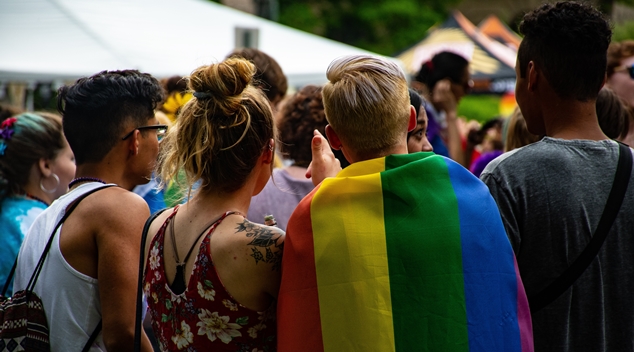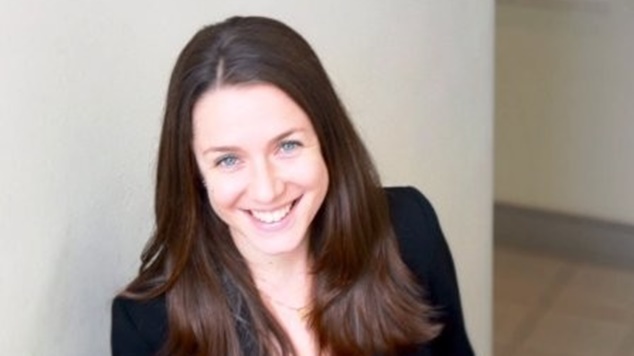
Researchers led by Telethon Kids Institute have developed Australia’s first comprehensive guidelines for clinical and community services supporting LGBTQA+ youth who may be at risk of suicide.
This article contains discussion about suicide prevention strategies.
The guidelines are aimed at health professionals, community service providers and any organisations that are in regular contact with young people, including teachers and police.
More than a quarter (25.6%) of LGBTQA+ young people (aged 16 and 17) have attempted suicide in their lifetime, almost five times the rate reported in the general population (5.3%). The statistics showing a clear need for more support and resources.
The comprehensive guidelines were developed with input from clinical and community service professionals as well as young LGBTQA+ people with lived experience of suicidal thoughts or behaviour.
They were also developed with significant input from researchers at Orygen, The University of Western Australia and WA’s Child and Adolescent Health Service.
The guidelines are made up of 290 clear recommendations, covering areas including general principles for inclusive practice, assessing and supporting young people who are experiencing suicidal thoughts, and advocacy.
The new resource also provides recommendations and considerations for specific groups of LGBTQA+ young people with intersecting identities.

Co-Head of Youth Mental Health research at Telethon Kids Institute and senior researcher on the guidelines, Dr Yael Perry spoke to OUTinPerth about the development of the new guidelines and how they will be promoted.
What was the impetus to kick off this project?
There’s pretty ample evidence that LGBTQA+ young people have higher rates of mental health difficulties and suicidal thoughts and behavior.
Obviously, that’s not everyone, we know that lots of LGBTQA+ young people have very happy and fulfilled lives, but relative to the general youth population, the suicide attempt rates five times the rates of the general population.
We know that a lot of that is due to things like stigma and discrimination, but it’s also compounded by inadequate access to safe, informed, appropriate tailored health care, and that’s something that we can do something about.
You worked with young people to develop these guidelines, what sort of input did they have? What what did they bring to the table?
It’s a well established research method called the Delphi Consensus Method. Basically, what we do is, we go to the empirical literature, and we draw all of the recommendations for suicide prevention in this population from the literature. So it’s all evidence based.
Then we present the recommendations to expert panels. So we had a panel of LGBTQA+ young people with lived experience of suicidal thoughts or behavior, and professionals who are either working with young people, or researchers who have expertise in this area.
So it’s their job to go through all of these recommendations and endorse them as either important or not important. And we only include in the guidelines, the ones that are endorsed by both panels as essential or important. Then people can provide feedback as well, so young people gave us some really great feedback.
We would have some simple recommendations, like it’s important to show signs of inclusivity like pride flags and that sort of thing, and we would get feedback that says, “Yes, it’s important, but that’s not enough.”
In fact, if you show a Pride flag, and you don’t actually have the training and the competence to adequately work with this population, then it’s disingenuous. So show your pride flag, but make sure that it’s backed up with with real understanding and skills.
There are 290 recommendations, which first of all take sounds like a lot, but what kind of things are included?
It’s divided up into into different sections and some sections will be more relevant to some clinical professionals and others would be more relevant to community professionals.
The first section is just general principles for creating an inclusive environment, and that’s going to be relevant to nearly anybody who’s working with young people, statistically, if you’re working with young people, you’re working with queer young people. So it’s about creating an environment that is welcoming and acknowledging of all different kinds identities.
That covers things about communication intake forms, posters, the way that you speak to people, offering gender neutral bathrooms, that sort of thing.
The other sections are a little bit more specific, the second section is focused on assessment and of suicide risk and responding to young people who express suicidal thoughts.
The third section is focused on considerations for specific population. So young people who are also neurodiverse, and people who are also Aboriginal and Torres Strait Islander, and there’s a specific section on the needs of trans young people as well.
Then the final section is around advocacy, and we got some strong messages that you can’t really create an inclusive environment unless you’re actively advocating for the community as well. It’s a smaller section, but there are some key recommendations about how you can promote inclusivity and affirming care within the environment that you work in.
These resources are focused on young LGBTQA+ people, but we also hear of stigma and discrimination affecting older members of the community – especially in health settings – do you think these guidelines will also have a flow-on effect?
Absolutely. Our initial intention was very much focused on clinical service providers, and then as we started looking at the recommendations, we recognised their relevance for community service providers and youth service providers, and general health providers.
We would really love these recommendations and these guidelines to be picked up by anyone working in the general community, because it’s important to have an understanding of how to polite and appropriate care to everybody.
There are specific recommendations around administrative staff and auxiliary staff having this kind of training and awareness as well, because we know that often the first point of contact, and people need to feel safe in their first point of contact.
Now that we’ve got these recommendations, how do they get out in the world?
We thought long and hard about this, because we really wanted it to be a practical tool. So other than distributing amongst our networks, we’ll also be doing a social media campaign.
We are having a webinar in a few weeks on the 24th of August, which will provide some information about how the guidelines were developed, how we’d love to see the used in practice, we have a youth advocate talking about why they’re so important for young people as well.
They’re really easy to find if you just go to the Telethon Kids Institute website and look for suicide prevention guidelines. You can go to the page, download them section by section or as a whole and there is also help for you to implement them in your service.
Download the new guidelines from the Telethon Kids Institute, and register for the upcoming webinar.
Graeme Watson
Do you need some support?
If you are struggling with anxiety or depression, support and counselling are available from:
QLife: 1800 184 527 / qlife.org.au (Webchat 3pm – midnight)
QLife are a counselling and referral service for LGBTQIA+ people.
DISCHARGED: info@discharged.org.au / discharged.org.au
Discharged is a trans-led support service with peer support groups for trans and gender diverse folks.
Lifeline: 13 11 14 / lifeline.org.au
Beyondblue: 1300 22 4636 / www.beyondblue.org.au
You can support our work by subscribing to our Patreon
or contributing to our GoFundMe campaign.




